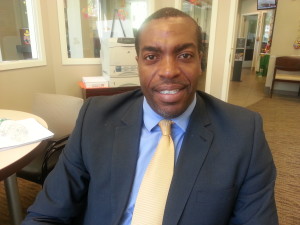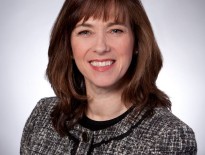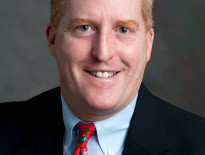Building a community from the inside out, one household at a time, is Andrew Sobers’ vocation. That’s the observation of his nominator at Urban Edge, a nonprofit CDC serving Jamaica Plain, Roxbury and surrounding Boston communites. Sobers has served on Urban Edge’s board of directors since 2008 – a time when the already-frail economic fabric of the CDC’s service area was unraveling further. He chairs the CDC’s Micro Loan Committee, which offers small, low-interest loans to small-business owners to help finance capital improvements, inventory needs, and new-business startup costs. These business customers are often not bank-ready, he said, “but their businesses are important to the community, and as such we look at them as individuals with their own uniqueness and not lump them based on a guideline.”
He co-chairs Urban Edge’s CEO Search Committee, serves as a board member of Urban Edge Real Estate of Greater Boston Inc., and has taught the CDC’s first-time homebuyer class for years.
At East Boston Savings, he directs the Community Reinvestment Act (CRA) lending efforts to increase the number of mortgages originated in greater Boston’s hardest hit neighborhoods, which are short on lack of affordable inventory, and then, the need to match up customers with the available options. That can take more than a year per customer, due to credit issues such as medical collections, charge-offs and asset-building issues. Sobers helps customers develop savings plans that can be correctly documented for bank lending purposes. At the end of the process, the customers are strongly prepared to close on a home.
The CRA does address some of the concerns, he said, but he urges all stakeholders to see that the underwriting may need to be revamped to accommodate more of the emergent borrowers.
Sobers cited a study of four major cities whose affordable-homeownership portfolios are performing well: Boston’s Homebuyer Assistance program has helped 4,800 low-income families since 1995 and only 62 of the loans have goine into foreclosure, for a foreclosure rate of 1.29 percent, less than a third of the general Boston market foreclosure rate of 3.95 percent. Other major cities report even better results; he said the results indicate that low-income does not have to mean high-risk. Sobers maintains that the positive impact of affordable-homeownership programs on borrowers’ sustainability justify his call for a revamp of the underwriting process.
Sobers is also a teacher. He is a national trainer with the nonprofit National Community Reinvestment Coalition (NCRC), traveling the country to train personnel in nonprofit organizations how to work with finance, pre- and post-purchase counseling, and housing affordability. Additionally, he is an adjunct professor at the New England College of Business, where he teaches courses in micro and macroeconomics, marketing, financial services and banking services. He is the 2006 recipient of the Black Achievers Awards, and last year was honored by MassHousing as a top producer of Massachusetts housing loans statewide.







